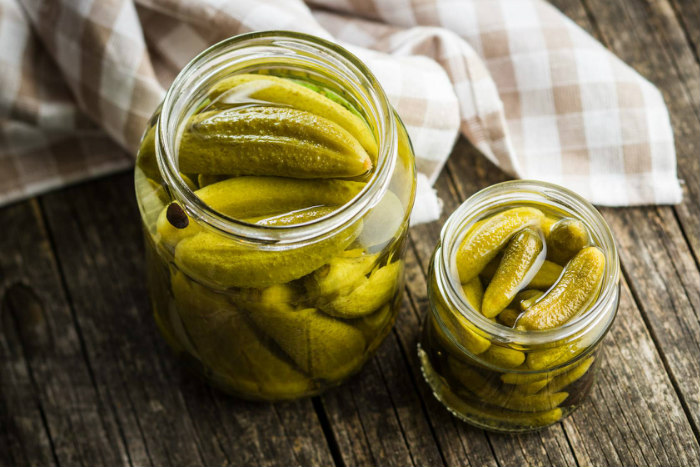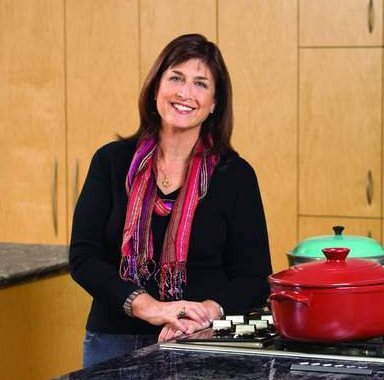
Whether we live in a high-rise apartment with a three-by-four-foot terrace or on a two-acre plot of land, many of us relish harvesting our own vegetables and herbs. After prepping, planting the seeds, and watering diligently, there is nothing like the day when the little yellow or purple flower buds signal that a crop is on its way.
Fast-forward to August and - if you've been a prodigious planter - the panic sets in. What will you do with all this produce? Your fridge is overflowing and your neighbors have already exceeded their food pyramid guidelines.
Why not do what your ancestors did? Pickle, preserve, and put up.
Originally cultivated in India and later in Mesopotamia and the Tigris Valley, the cucumber goes back to biblical times (Numbers 11:5 and Isaiah 1:8). And so does the art of pickling. During the age of exploration, Christopher Columbus brought cucumber plants to the New World on his voyages, and the pickles aboard ship prevented the seamen from getting scurvy. For the Jews who lived in Eastern Europe before the great immigration to America, pickling served two purposes: it preserved the meager amounts of produce and fish that were available for future consumption and it enabled women of the shtetl to earn an extra few kopeks so that their husbands could spend more time studying Talmud.
Is it any surprise that pushcarts with pickles found their way to the New World?
In the early 1900s, Jewish immigrants began New York City's first commercial pickle district. Many vendors started out with a rented pushcart to haul homemade pickles. In the 1920s, there were more than eighty pickle vendors on the Lower East Side. One of the most successful, Izzy Guss, bought his own pickle store, which he named Guss' Pickles. Over time, with the decline in the economy and tougher immigration and pushcart laws, most of the picklemen went bust, but Guss' Pickles has survived to this day.
One of Izzy's protégés, Alan Kaufman, owns The Pickle Guys on Essex Street. After all these years, Kaufman continues to pickle by hand the old-fashioned way, using an ancient Eastern European recipe. He can tell you why it's preferable to use salt (the shtetl way) instead of vinegar--vinegar will brown the pickle faster and sour it more quickly. And if you ask him the difference between a Polish pickle and a kosher dill, he'll tell you that the Polish has more dill and the dill more garlic. Go figure.
For the home cook, there's more to pickling than pickles. All kinds of foods can be preserved through this process. Our Sephardi ancestors, for example, would roast vegetables and then preserve them in vinegar and olive oil. Caponata, the traditional Italian Sabbath eggplant dish, is a perfect example: the vinegar in the recipe both flavors the Caponata and prolongs its shelf life. As far back as Roman times, mushrooms and zucchini were seasoned and immersed in a vinegar/salt bath to both marinate and cure for future consumption.
Eat in good health!
Explore Jewish Life and Get Inspired
Subscribe for Emails

